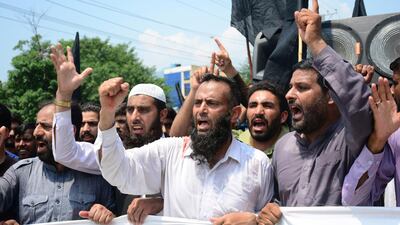The Indian government's shock decision to revoke the special status of the state of Jammu and Kashmir represents a dramatic reversal of a 70-year-old constitutional balancing act, introduced in the wake of Partition to grant a degree of autonomy and security to the disputed region with a predominantly Muslim population.
As such, the revocation of Article 370, a move hailed by India’s ruling Bharatiya Janata Party as “correcting a historical blunder”, is a dangerous gamble, with potentially disastrous consequences in a region with strong separatist tendencies.
In the wake of Partition in 1947, the former princely state of Jammu and Kashmir initially wavered but ultimately pledged its allegiance to India rather than to Pakistan. It is the perceived betrayal of this trust invested in India that is now generating fear and anger among Kashmiris.
Crucially, stripping the region of its special status paves the way for the realisation of the BJP’s manifesto pledge to scrap a 65-year-old law that prevents non-residents from buying property in the region.
Kashmiris fear that scrapping the law is a first step to watering down the region’s Muslim-majority population, tantamount to an exercise in ethnic cleansing.
Such concerns will not have been assuaged by the heavy-handed clampdown imposed on the region in the run-up to the announcement. Unsurprisingly, from the perspective of Kashmiri parties such as the People's Democratic Party (PDP), whose leader and former Jammu and Kashmir chief minister Mehbooba Mufti is among those now under house arrest, such acts appear more suited to a hostile occupying force than to their own national government.
Indian home minister Amit Shah has cited the "prevailing security situation" as the reason for the historic move. In truth, the revocation of Article 370 has always been on the agenda of the BJP, which sees Jammu and Kashmir's special status as a barrier to complete Indian unity.
India is, of course, entitled to act to defend itself against any perceived threats, whether from nation states or militant groups.
But whether or not there is a sound basis to the government’s claims that an attack on the annual Hindu Amarnath pilgrimage was imminent, using this as a pretext for such a radical remodelling of India’s constitution is at best an exercise in clumsy political opportunism.
By clamping down on the rights and freedoms granted to its Muslim citizens, the Indian government has manoeuvred itself into a crisis. If it is to spare Kashmir and India further suffering and ethnic violence it must act quickly to defuse it.

